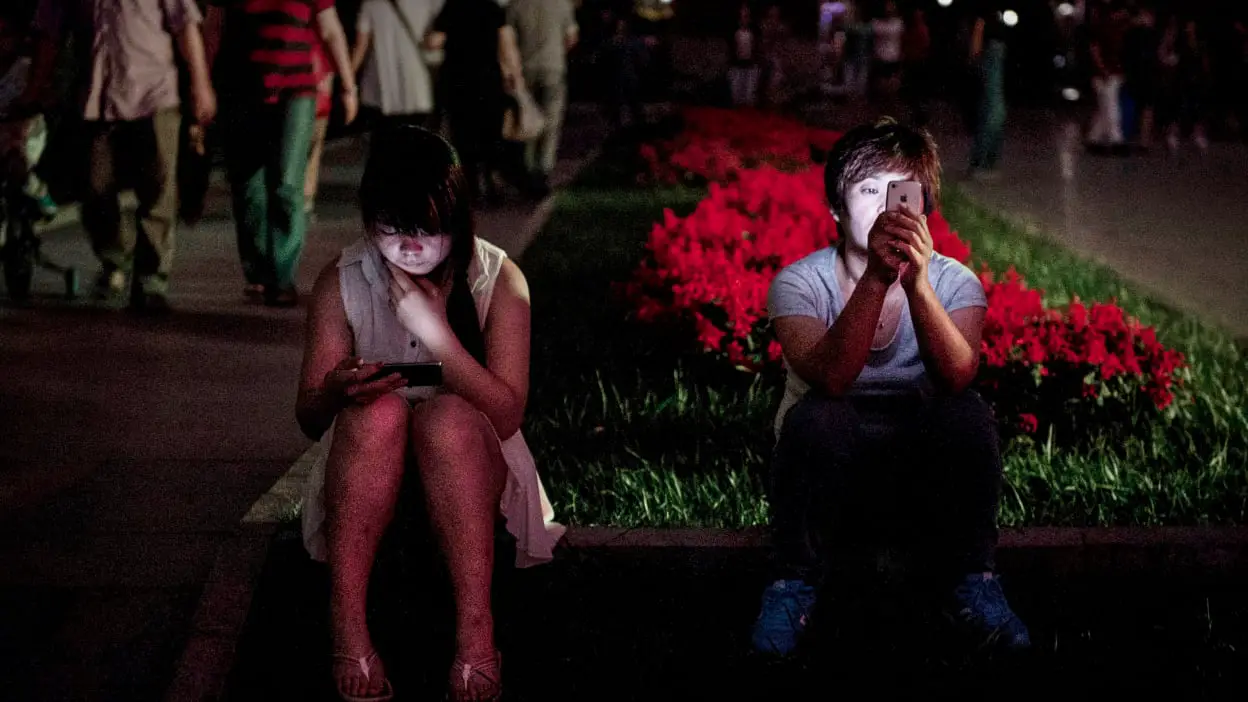When the question “Are people becoming less sociable because of technology?” is asked, we frequently picture a child playing a video game while ignoring their parents’ yells to come down for dinner and failing to socialize with other kids.
Why is technology making us less social?
But the answer is much more twisted than you might imagine. First, there is little doubt that technology has developed quickly in recent years and is now an essential component of daily living.
Technology has altered our communication, and it is difficult to say whether this change has been for the best or worse.
Many will argue that technology has reduced our ability to socialize with one another, and that is true. The following are instances of how technology has affected socialization among different age grades and families.
Instances of Technology affecting Socialization in Relationships
Parents and Children
Parents’ inability to interact directly with their kids’ results in disconnected kids who need more social skills to interact with others healthily. Tablets frequently educate kids more than parents do.
Couples

Couples frequently become more engrossed in their smartphones or television sets than in honest conversations.
Student and Teacher
Schools are now using mobile devices and internet gateways for tasks and learning thanks to the introduction of tablets, apps, and computer devices.
Also Read- The future of laptops: trends and predictions for 2024
Employer and Employee
Because of the modern increase in technology that automates chores and replaces some non-technological systems, employees frequently deal with computer systems more than they did in the past.
With freelancing and working from remote locations, this problem is even worse. This frequently leads to miscommunication, misunderstandings, a lack of commitment to tasks, and a lack of enthusiasm for work.
The Adverse effect of technology on our Social Life
Decreased human contact
People increasingly depend on technology to communicate with friends, family, and coworkers. We now have even less human contact due to the coronavirus lockdown, which drove millions to work from home and increased online communication tools.
Transactional processes are automated with self-service machines as remote working becomes the standard. This illustrates how negatively technology affects our communication, which may be beneficial in theory for many. However, the same ease of technologically-propelled interactions leaves behind some groups.
The increased use of technology for communication may also contribute to increased loneliness, particularly among older people, who may depend heavily on these transactional interactions for social interaction.

Online deception
Catching a false online identity to control, stalk, or abuse a particular victim is known as catfishing. It is the topic of a well-liked MTV reality TV show.
It has become an ominously typical activity on dating websites and social media platforms. In a 2018 survey, 9% of participants said catfishing harmed their emotional health.
Online Theft and Scam
Thanks to technology, online predators now have a forum to go after their victims. Children spent more time on their devices and experienced a sudden decline in social contact due to the closure of UK schools during the coronavirus lockdown.
Although there is no conclusive evidence to back this claim, the National Center for Missing & Exploited Children (NCMEC) stated that reports to their CyberTipline increased by 106% during the first months of the pandemic.
Cyberbullying
Cyberbullying has also been made possible by technology, and young people are now especially susceptible to harassment online. While cyberbullying is a concern for kids, it is also increasingly a problem for adults. A YouGov survey last year revealed that 25% of adults had encountered cyberbullying. Furthermore, technology is not always a healthy form of social interaction, given the depressing rise in suicide among victims of cyberbullying.
Unreal Romantic Relationships
In addition to parenting, dating is one of the significant interaction spheres that technology and virtual distance have altered. Since the introduction of well-known dating apps like Tinder, individuals no longer use social skills to meet prospective partners but swipe through a “catalog” of individuals.
Additionally, ghosting—the act of abruptly leaving the online world when no longer interested—is frequently widespread and is caused by a lack of social skills or courage to terminate a relationship the traditional way. Thus, reducing sophisticated social skills that were once universal is a direct consequence of virtual distance.
However, without a doubt, whatever has a disadvantage should have an advantage. Despite the adverse effects of technology on our social lives, it has also done some little magic in our communication life.
Importance of Technology to Our Social Life

It cannot be disputed that the internet has improved human contact. Here are a few instances of how technology enhances social communication.
Instant global communication
What impact can technology have on social media? Most of us can now instantly contact individuals on the other side. Technology has eliminated the barriers to contact that distance once posed, so there is no need to wait for the mailman, a messenger pigeon, or a message in a bottle. Hence the term “globalization.”
Finding Love made Easy
Finding love has also become much simpler thanks to technology, with online dating becoming more and more common. By 2035, Over 50% of couples will meet online, according to a study published in 2022. In addition, the same survey discovered that 47% of people think online dating makes it simpler for introverted people to locate a partner.
Virtual connections
Let’s examine how technology impacts interpersonal interactions. People can connect emotionally without being in the same room thanks to video calling applications like Skype and Zoom. This has been crucial during the coronavirus crisis, which drove families from different homes to live apart. Zoom was downloaded 2.13 million times worldwide on the day the UK lockdown was revealed, an increase from 56,000 downloads daily two months prior. The daily average for internet users globally on social media in 2022 was 147 minutes.
Barrier-free communication
Similarly, those who previously had little opportunity for social contact can now join online communities. While socially anxious people can gain confidence by practicing interaction online rather than in person, people with disabilities can forget their physical limits in a video game world.
When communicating face-to-face, individuals have more time to process information and come up with a response. This, however, is only sometimes a positive thing.
Conclusion
Technology has significantly impacted how we communicate, whether we view it positively, negatively, or even in a manner that combines both. Unfortunately, while it enables us to interact instantly with people in different parts of the globe, it also exposes us to new types of harassment and manipulation and the risk of loneliness.
Overuse of technology, which has divided many people worldwide, has led to increased isolation, decreased social contact and social skills, and increased human-to-machine interactions. But as new technologies are made public, new regulations and security measures will also be implemented. These are unlikely to shield everyone from the negative impacts of technology.
Still, we are also responsible for exercising caution when using the internet. We also must ensure we have enough in-person social interaction each day and online social interactions.

